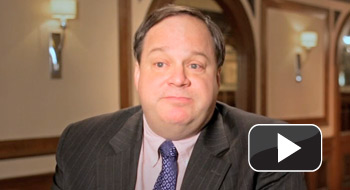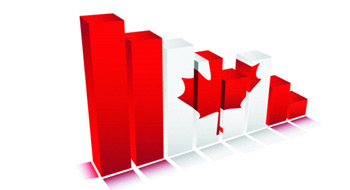
Can the U.S. avoid going over the fiscal cliff? Not a chance. That was the conclusion of J. Bradford DeLong, professor of economics at the University of California, Berkeley and keynote speaker at this year’s Investment Innovation Conference, which kicked off November 7 in San Diego.

It’s a tight race to the White House, if media reports are anything to believe. But who actually sits in the Oval Office come January 2013 may have varying outcomes for the U.S. economy, the fiscal cliff (the expiry of the Bush tax cuts) and the debt ceiling (currently at $16 trillion).
The Bank of Canada (BoC) has announced that it is maintaining its target for the overnight rate at 1%. Global economy The economic expansion in the United States is progressing at a gradual pace. Europe is in recession and recent indicators point to a continued contraction. In China and other major emerging economies, growth has […]

This year began with such promise. It seemed like the world was righting itself and investors, particularly pension funds, might get some respite from the volatility that they had been facing over the past few years. Europe was on the mend, albeit slowly. T

The current economy is not the best of times, and it’s not the worst of times. With global growth of about 3%, it’s the mushy time in between, said Avery Shenfeld, chief economist and managing director with CIBC, presenting his outlook for investors last week at the National Club in Toronto.

On Sept. 10, 2001, I was enjoying a round of golf near Uxbridge, Ont., with prospective clients from Scandinavia. We had a wonderful day getting to know them before our big presentation.

As a result of business tax reform since 2005, Canada has become the most tax-competitive jurisdiction in the G7, according to a report released today by the University of Calgary’s School of Public Policy.

A little after 4 p.m. EDT on Aug. 14, 2003, downtown Toronto went dark. Rob Shier, senior vice-president and chief operations officer with CIBC Mellon, recalls that his immediate reaction was, “Oh, this floor has lost power.”

According to new data from Statistics Canada, nominal GDP increased 0.1% in the second quarter, after a 0.5% gain in the first quarter. The growth in incomes slowed considerably in the first half of 2012 to 0.3%, on average, compared with 1.5%, on average, in the second half of 2011. Labour income rose 1.2%, up […]

Enrollments in public sector pension plans have been growing at twice the rate as growth for private sector employment levels, meaning Canadians could face higher taxes and reduced government services unless action is taken soon, finds a new report released by the Canadian Federation of Independent Business (CFIB).